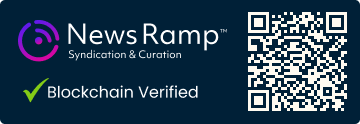Five Emerging Trends Shaping the Future of Remote and Hybrid Work by 2025

Summary
Full Article
The evolution of work models continues to accelerate, with remote and hybrid arrangements setting the stage for the future workplace. By 2025, these models are expected to dominate, driven by technological advancements and shifting employee expectations. The implications for businesses, especially those in the human resources sector, are profound, as they navigate these changes to attract and retain talent.
Hybrid work models are emerging as the preferred framework, offering employees the flexibility to balance remote work with in-office collaboration. This shift not only enhances employee satisfaction but also challenges organizations to rethink office space utilization and team dynamics.
Digital workspaces are undergoing rapid transformation, with platforms like Slack, Zoom, and Microsoft Teams at the forefront. These tools are becoming more sophisticated, enabling real-time collaboration that rivals physical office interactions. For HR vendors, this presents an opportunity to develop or integrate solutions that enhance these virtual environments.
Artificial intelligence and automation are redefining remote work efficiency. AI-driven tools are automating administrative tasks, freeing employees to focus on strategic activities. This trend underscores the need for HR professionals to upskill and adapt to these technological shifts.
Employee well-being has taken center stage, with companies investing in digital wellness programs. The focus on mental and physical health in remote settings is critical, as it directly impacts productivity and engagement. HR vendors can play a key role by offering innovative wellness solutions tailored to distributed teams.
Finally, the democratization of talent acquisition is perhaps the most transformative trend. Remote work eliminates geographical barriers, enabling companies to tap into global talent pools. This shift towards diversity and inclusion is reshaping organizational cultures and competitive dynamics. For the HR industry, it highlights the importance of developing strategies to manage and integrate a geographically dispersed workforce.
These trends underscore a fundamental reimagining of work, with lasting implications for how businesses operate and compete. For HR vendors, staying ahead of these changes is not just beneficial—it's essential for relevance in a rapidly evolving market.

This story is based on an article that was registered on the blockchain. The original source content used for this article is located at Press Services
Article Control ID: 81227